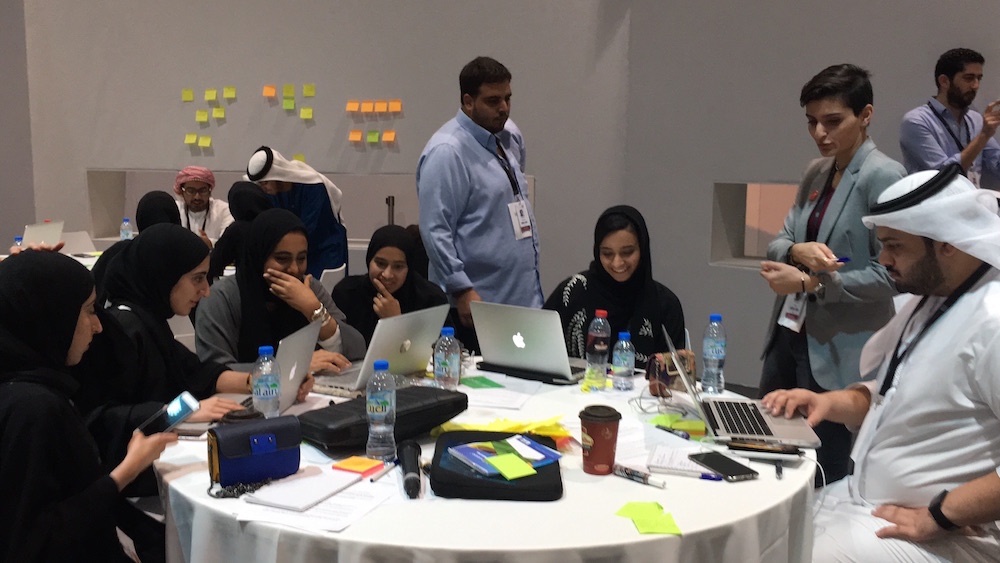Minds on a Mission gets Emirati students thinking

“Tell me and I forget, teach me and I may remember, involve me and I learn” were the wise words from Benjamin Franklin that inspired the winners of the Minds on a Mission design thinking workshop last week.
The team of women who created LIFT (learning innovation fun technology) won first prize for their solution to low student engagement.

“Everyone faces this problem,” said LIFT team member Aysha AlRemeithi. “We’ve all experienced it. Even my mum who’s a maths teacher sees this problem.”
With a focus on maths, Aysha and her team wanted to create an approach with the help of a program from supercomputer IBM Watson (where AI is combined with analytical software) to test a student’s level of knowledge as well as which teaching style suited them best.
A common theme from the Emirati students was that what is being delivered by the education system in the UAE isn’t necessarily what is being received by the student. They used this idea as a springboard for their ideas in the workshop.
They are not alone. The Millennials in the Middle East survey from 2014 found that 31 percent of those surveyed felt that a disconnection between their educational qualifications and their current job profile presented a major barrier.
“We see a gap between what is delivered by education systems and then what is received by the students,” said Khalifa Al Shehhi. He and team mate Ahmed Al Shehhi created Vrerum Education Systems. Stressing the idea that many students are left behind in education because what is being delivered isn’t suitable for everyone.

“Moving away from our use of fossil fuels is our biggest challenge,” said Salem Al Menhali. A student of petroleum engineering in Abu Dhabi, the Al Menhali decided, along with Manar Al Mazrouei to put together a plan for turning cooking oil waste into biofuel. They called their idea Fuel It.
Mouwasalati (my transport) wanted to encourage people to use public transport more so created a program whereby users of their app could gain points for each journey. Points could then be redeemed on gifts and discounts.
Meanwhile, Moubdioun lilwatan (innovators for the country) looked to give students in remote parts of the UAE access to mentors and experts that would ordinarily be hard for them to reach. Drawing on her own experience of trying to build a smart smoke detector over three years, because of a lack of help close by, Haya Alali saw this an important step for education. And Attractive Class sought to have a two-fold approach - making the classroom environment more conducive to learning, while also creating a ‘data room’ where teachers from anywhere could share data and experiences of teaching.
Hosted by Wamda and Cognit, the exclusive provider of IBM Watson technology in MENA, 26 Emirati students put themselves into teams to pinpoint problems they see in education and transport, and then come up with possible solutions. It was part of the Mohamed Bin Zayed Majlis for Future Generations event in Abu Dhabi last week, which had a focus on topics such as cyber security, smart cities, urban development, and entrepreneurship.


